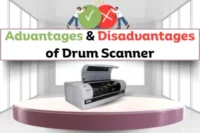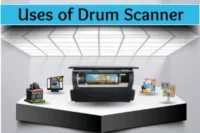Types of Keyboard in Computer – Beginner Guide with Images
Published: 28 Jul 2025
A keyboard is an input device we use to type on a computer. But did you know there are many different types of keyboards? Each one is made for a different purpose—like gaming, typing, or working comfortably. If you’re a student, office user, or gamer, it helps to know which keyboard is right for you.
In this post, let’s explore the most common types of keyboards you should know.
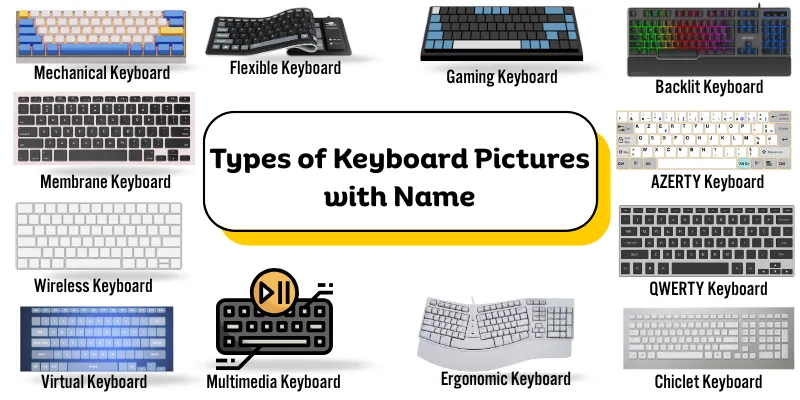
What Are Types of Keyboard?
There are many types of keyboards used in today’s digital world. Each type is made for different needs, like speed, comfort, or portability. Some keyboards are great for gaming, while others are best for office or home use.
Below is a quick list of more than 10 types of keyboards:
- Mechanical Keyboard
- Membrane Keyboard
- Wireless Keyboard
- Wired Keyboard
- Ergonomic Keyboard
- Gaming Keyboard
- Virtual Keyboard
- Flexible Keyboard
- Compact Keyboard
- Standard Keyboard
- Chiclet Keyboard
- Backlit Keyboard
- Multimedia Keyboard
- DVORAK Keyboard
- AZERTY Keyboard
- QWERTY Keyboard
Let’s explore the above-mentioned keyboard types with images in a simple way:
Mechanical Keyboard
A mechanical keyboard uses spring-loaded switches under each key. It gives a loud, clicky sound and strong feedback when you press a key. This makes it perfect for fast typists and gamers who want accuracy.
Many people like it for long writing tasks or competitive gaming.
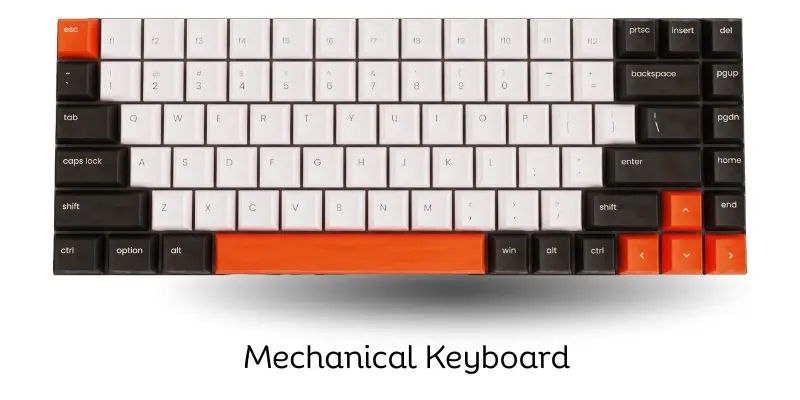
Membrane Keyboard
This type has soft keys that work when you press down on a pressure pad. It’s quiet, lightweight, and usually cheaper than mechanical ones. Most home and office users prefer this for daily typing.
It’s commonly included in basic desktop PC setups.
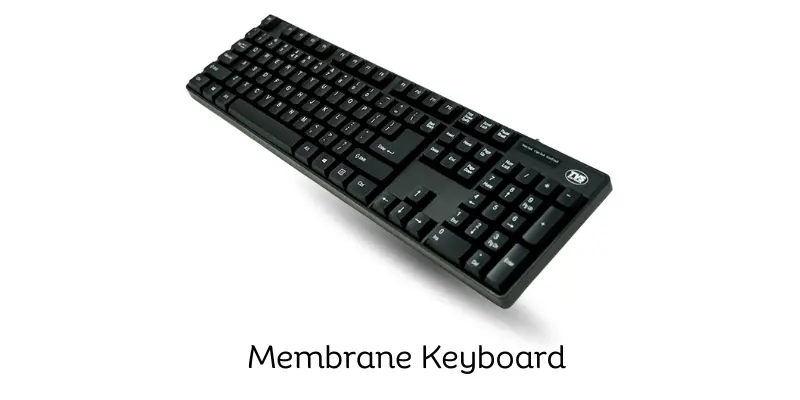
Wireless Keyboard
Wireless keyboards connect to your device using Bluetooth or a USB receiver. They remove cable clutter and are great for clean desk setups or smart TVs. You can easily carry them around or use them from a distance.
Just remember, they run on batteries or need charging.
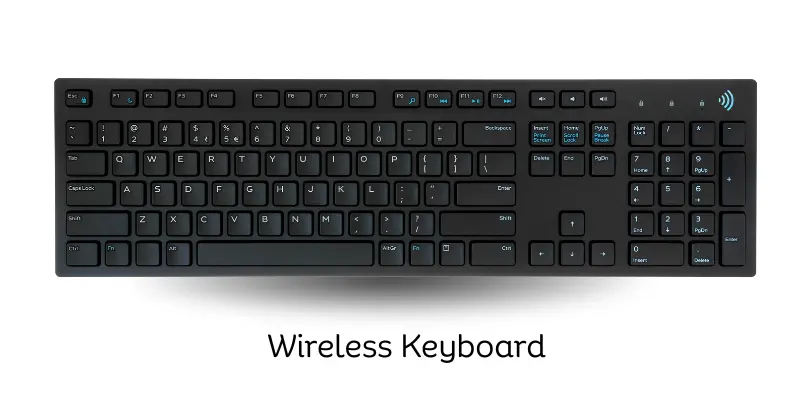
Wired Keyboard
A wired keyboard connects to your computer through a USB cable. It gives a stable and fast response with no delay. Many gamers and office workers like it because there’s no need to charge it.
It’s also plug-and-play, so setup is quick and easy.
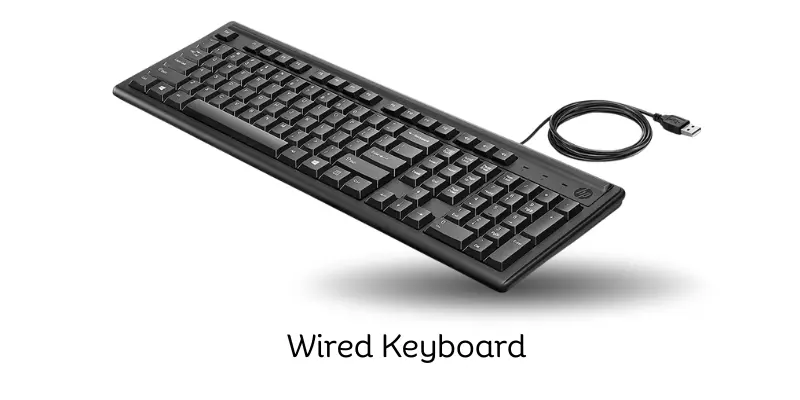
Ergonomic Keyboard
Ergonomic keyboards have a curved shape that fits the natural position of your hands. They reduce strain on your wrists and arms during long typing sessions. These are great for writers, coders, or office workers. Some models even come with built-in wrist rests.
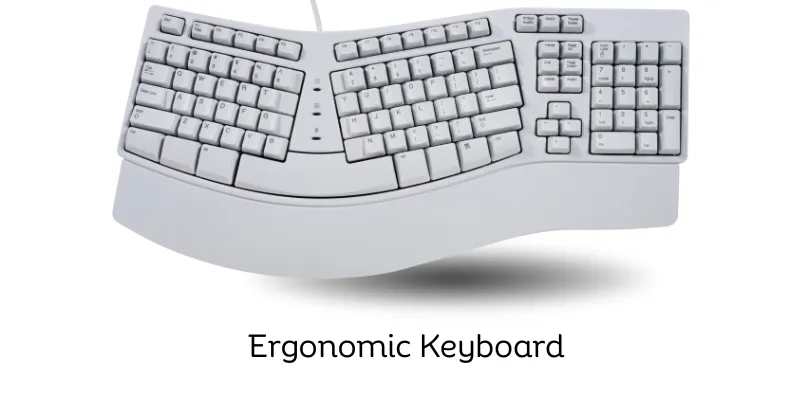
Gaming Keyboard
Gaming keyboards are built for speed, accuracy, and durability. They often come with RGB lights, macro keys, and fast switches. Gamers prefer them for their quick response time during Gameplay.
Some models also include anti-ghosting and customizable keys.
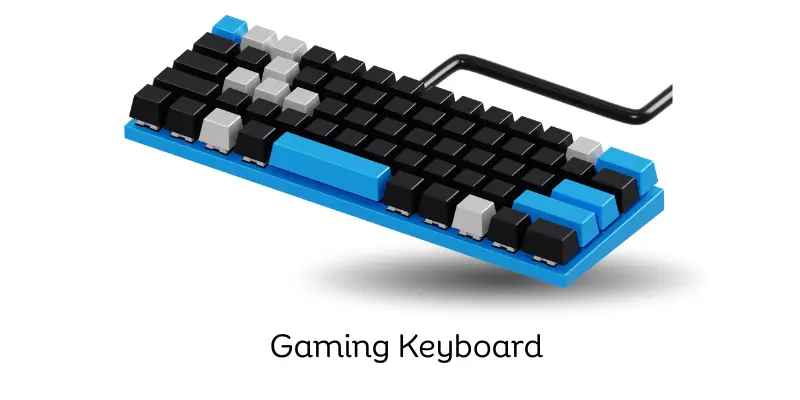
Virtual Keyboard
A virtual keyboard appears on a screen and lets you type by tapping. It’s found on smartphones, tablets, and touchscreen laptops. It’s useful when there’s no physical keyboard available.
You’ll often see it pop up while typing in apps or browsers.
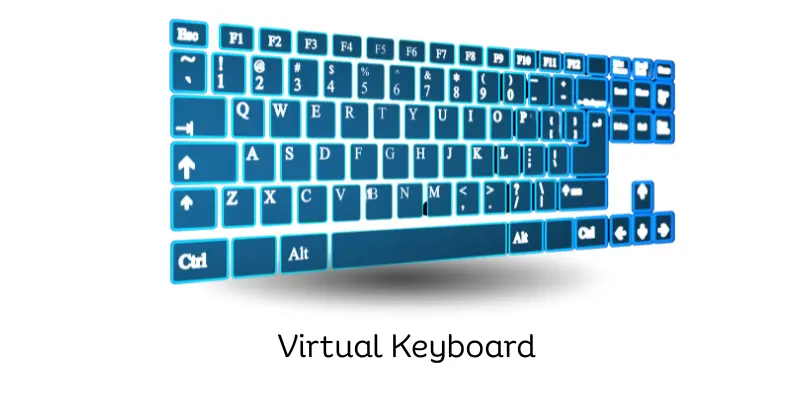
Flexible Keyboard
Made of rubber or silicone, this keyboard can bend and roll up. It’s waterproof and dustproof, which makes it great for tough environments. You can carry it in your bag and use it while traveling.
Many tech workers use it in outdoor or field jobs.
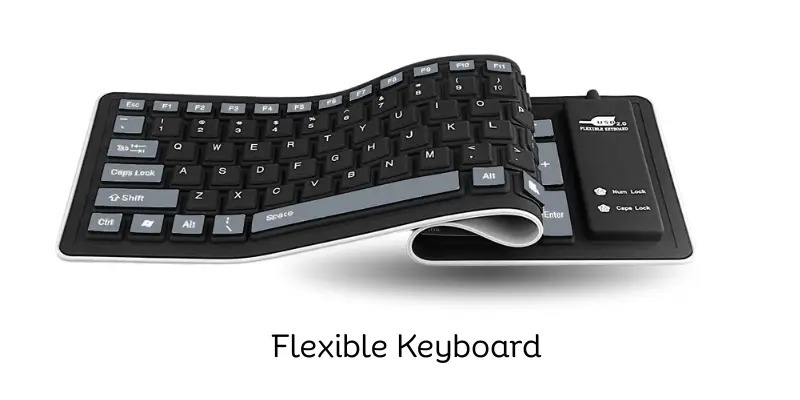
Compact Keyboard
This is a smaller keyboard without the number pad. It saves space and is great for small desks or portable setups. Many people use it with laptops or tablets. It’s lightweight, travel-friendly, and easy to pack.
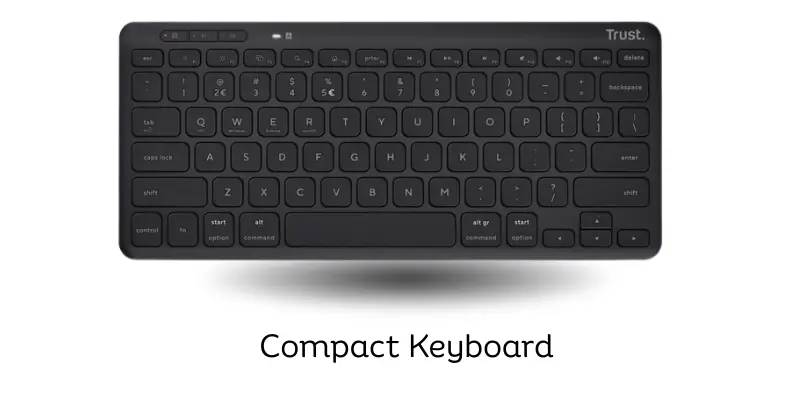
Standard Keyboard
A standard keyboard has a full layout with letters, numbers, function keys, and a number pad. It’s used in homes, schools, and offices for all basic typing needs. Most desktop computers come with this keyboard.
It’s simple, reliable, and familiar to most users.
Chiclet Keyboard
This keyboard has flat, square keys with space between them. You’ll see it in most modern laptops and some desktop keyboards. It’s easy to clean and gives a soft typing feel.
Many users like its stylish look and quiet performance.
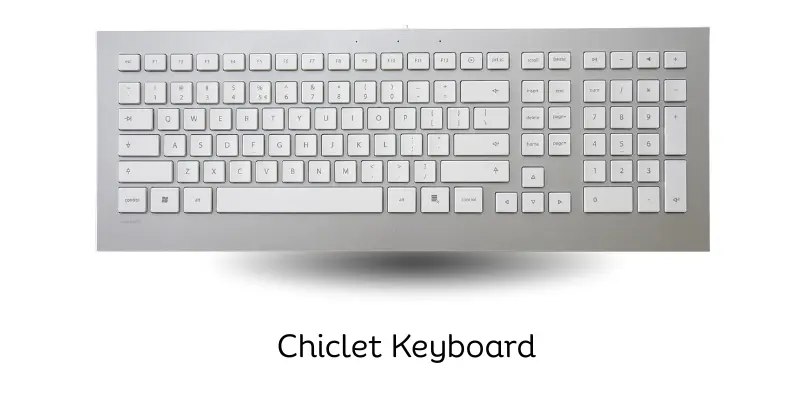
Backlit Keyboard
Backlit keyboards have lights under the keys, so you can type in the dark. They are useful for gaming or late-night work sessions. Some models allow you to change the light color or brightness.
This feature is common in gaming laptops and premium keyboards.
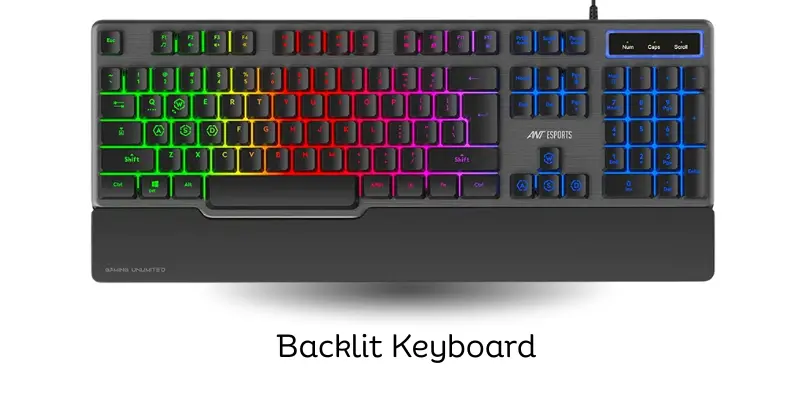
Multimedia Keyboard
This keyboard comes with extra buttons for controlling volume, music, and videos. It’s perfect for users who watch content or listen to music often. You can pause, skip, or adjust settings without touching your mouse. It’s a good pick for home media setups.
DVORAK Keyboard
The DVORAK layout is different from the usual QWERTY layout. It’s designed to reduce finger movement and increase typing speed. Some typists and coders switch to it after learning QWERTY.
It takes time to adjust, but it can be more efficient for some users.
AZERTY Keyboard
This layout is mainly used in France and Belgium. It looks like QWERTY but has changes for the French language. French speakers use it for better typing comfort.
It may confuse users who are used to English keyboards.
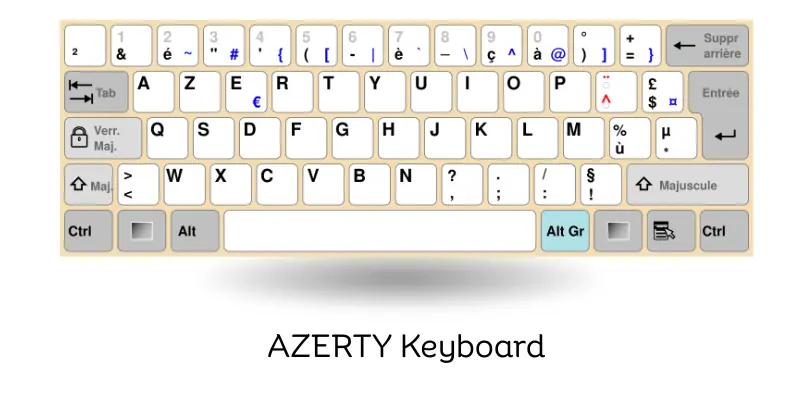
QWERTY Keyboard
QWERTY is the most common keyboard layout worldwide. You’ll find it in schools, homes, and offices. It’s easy to learn and works well for all types of typing tasks. It’s the default layout on most computers and laptops.
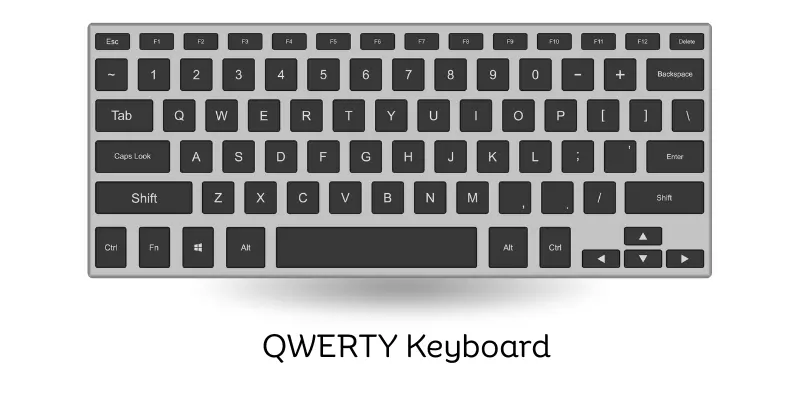
Conclusion
So guys, now we are going to wrap up this article. We’ve covered types of keyboards with pictures in detail in a simple and beginner-friendly way. From mechanical to wireless, each keyboard has its own benefits. I personally suggest choosing one that feels good to your hands and fits your daily use. Still unsure which keyboard suits you best? Drop your question in the comments below!
FAQs About Types of Keyboard in Computer
Keyboards come in many types, so it’s normal to have a few questions. Here are some common doubts people have after learning about different keyboard types.
The most common keyboard is the QWERTY keyboard. It’s used in most schools, offices, and homes. It’s great for general typing tasks and works well for beginners.
Mechanical and gaming keyboards are best for gaming. They respond quickly and often have backlit or RGB keys. Many also include macro buttons for fast actions. Gamers prefer these for speed and accuracy.
Mechanical keyboards use spring-loaded switches for each key. They feel clicky and offer better feedback. Membrane keyboards have soft keys that press down on rubber layers. They are quieter and usually cheaper.
Standard or membrane keyboards are great for students. They are simple, easy to use, and budget-friendly. Students learning typing can also use QWERTY keyboards. These types work well for school and home use.
Wireless keyboards are great for clean desks and flexibility. But wired keyboards offer more stable connections. Gamers and heavy users often prefer wired ones. Wireless ones need charging or batteries.
An ergonomic keyboard is shaped to fit your hands and wrists. It helps reduce strain during long typing sessions. This type is ideal for office workers or anyone who types for hours. It supports better hand posture.
Compact and flexible keyboards are perfect for travel. They’re light, small, and easy to carry. Flexible ones even roll up into your bag. These types are handy for remote work or mobile use.
A backlit keyboard has keys that light up. It helps you type in low-light or dark rooms. Many gaming and laptop keyboards have this feature. You can often adjust the brightness or color.

- Be Respectful
- Stay Relevant
- Stay Positive
- True Feedback
- Encourage Discussion
- Avoid Spamming
- No Fake News
- Don't Copy-Paste
- No Personal Attacks

- Be Respectful
- Stay Relevant
- Stay Positive
- True Feedback
- Encourage Discussion
- Avoid Spamming
- No Fake News
- Don't Copy-Paste
- No Personal Attacks

